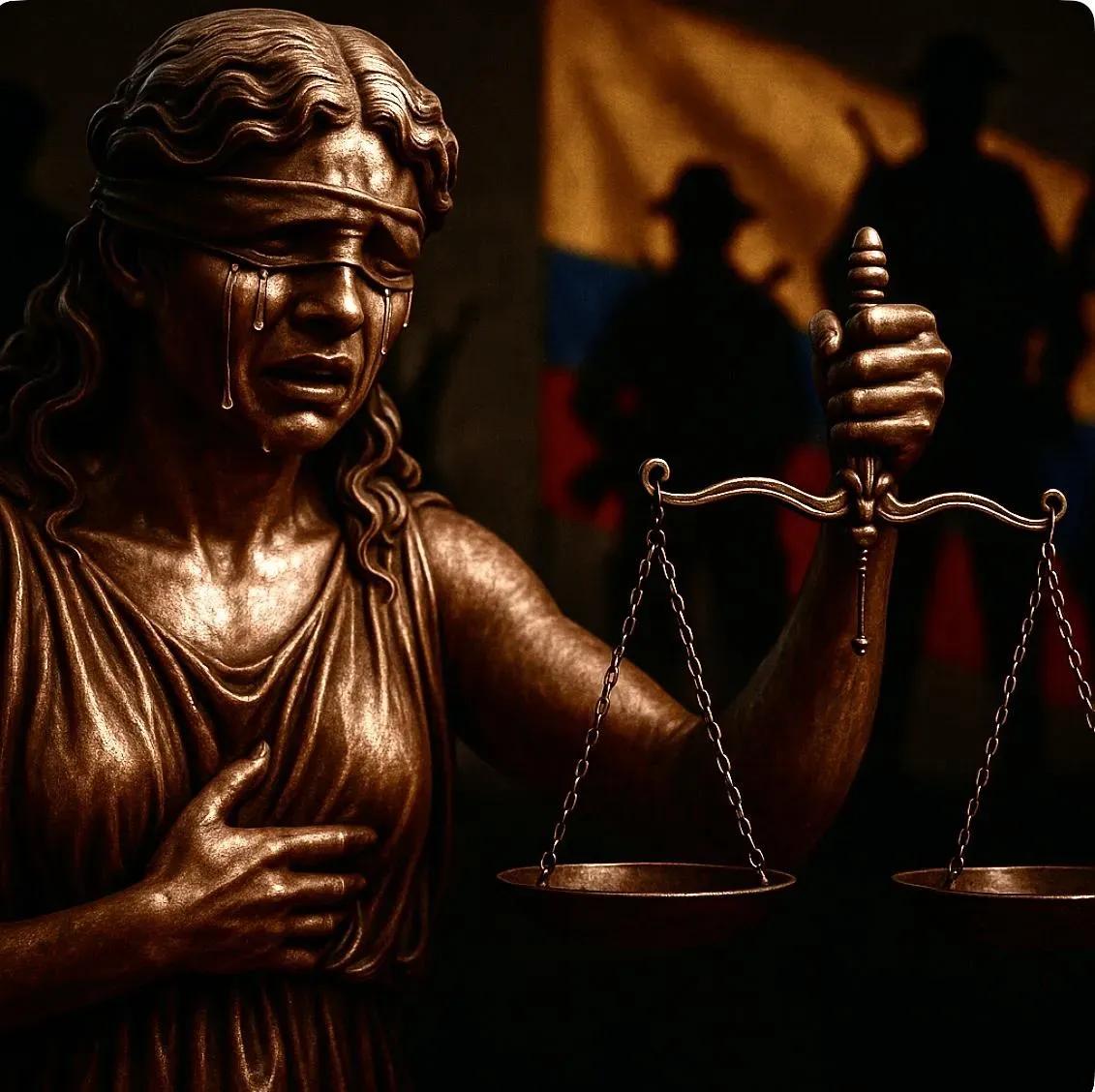William Acosta, CEO of Equalizer Investigations, for Poder & Dinero and FinGurú
Executive Summary
On August 1, 2025, former president Álvaro Uribe Vélez was sentenced in the first instance to twelve years of house arrest, a fine of more than 2 billion pesos, and ineligibility to hold public office for eight years. He was found guilty of the crimes of bribery in criminal proceedings and procedural fraud. Judge Sandra Heredia based her ruling on solid evidence: interceptions, testimonies, and judicial records that evidenced the manipulation of witnesses in favor of the former president (BBC Mundo, 2025a; El País, 2025a).
Uribe's defense appealed the decision, so the case remains in the hands of the Superior Court of Bogotá. This process has triggered a deep public and political debate, intensifying polarization in Colombia.
Crimes, evidence, and grounds for conviction
Uribe was found responsible for instigating his lawyer Diego Cadena to manipulate statements to discredit the complaint of Senator Iván Cepeda, who linked him to paramilitary structures. According to the judge, Uribe "knew of the illicit nature of his actions." The decision marked an institutional and symbolic milestone in the country (El País, 2025a; El Mundo, 2025).
Political dispute and justice as a tool
Leftist sectors, such as the Historical Pact and figures like Iván Cepeda, celebrated the ruling as an achievement of the rule of law. On the opposite side, uribismo and the institutional right denounced lawfare and "political persecution" by the judiciary. Uribe and his allies insist that politics prevailed over law and classify this ruling as an act aimed at breaking his political legacy (Infobae, 2025a; El País, 2025b).
The role of the socialist left and its international projection
The conviction has been widely supported by sectors of the socialist left in Colombia and even internationally capitalized by ideologically aligned actors. International judicial and journalistic reports show that officials of the Venezuelan regime have provided support to the FARC, facilitating drug trafficking routes and receiving bribes in exchange for protection (BBC, 2020; ICE, 2025).
“The United States has accused President Nicolás Maduro of collaborating with the FARC in drug trafficking operations as part of a strategy of narco-terrorism” (BBC, 2020).
This narrative has reinforced the arguments of anti-Uribista sectors inside and outside Colombia, consolidating the conviction as a symbol of ideological triumph beyond the judicial realm.
Narcoterrorism and judicial selectivity: Is there symmetry for all actors?
While former members of the FARC enjoy judicial benefits within the framework of the peace process, sectors aligned with former president Uribe denounce an unequal use of justice. According to reports from the Commission of Excellence in Justice (2023) and ObservaJEP (2024), proceedings against insurgent actors progress slowly and with little proportionality in the application of sanctions (CEJ, 2023; ObservaJEP, 2024). It is noted that the judicial apparatus faces ideological pressures and imbalances when it comes to punishing different actors in the conflict.
Profile of the main opponents and context
• Iván Cepeda: Senator, victim of the conflict, with a background in human rights. His focus has been to denounce links between the State and paramilitarism.
• María José Pizarro: Daughter of former M-19 commander Carlos Pizarro. She advocates for a public agenda focused on reconciliation.
• CAJAR: A collective of lawyers focused on human rights, subject to stigmatization without judicial proof of links with armed actors.
• Juan Guillermo Monsalve: Former paramilitary and key witness in the Uribe case, with a recognized criminal history.
• Historical Pact: The governing coalition close to the Petro government, with figures from the demobilized former insurgency.
Critical conclusion
The conviction of former president Álvaro Uribe represents something more than a judicial ruling: it symbolizes a deep shift in the Colombian political axis. It reflects the convergence between national and international legal-political networks, under the narrative of transformation promoted by the left. However, this change occurs amid strong signals of judicial imbalance, where the treatment of different actors in the Colombian armed conflict is far from being symmetric.
The current challenge is whether Colombia can build a justice system that is not determined by ideological affinities or geopolitical alignments, but by the principles of truth, proportionality, and equity.
References
• BBC Mundo. (2020, March 26). U.S. accuses Nicolás Maduro of narco-terrorism. Retrieved from: https://www.bbc.com/news/world-latin-america-52053799
• BBC Mundo. (2025a, July 29). Uribe found guilty of bribery and procedural fraud. Retrieved from: https://www.bbc.com/mundo/articles/ckgl04163ygo
• BBC Mundo. (2025b, August 2). Uribe sentenced to 12 years of house arrest. Retrieved from: https://www.bbc.com/mundo/articles/cn43x91rpy1o
• CEJ – Corporation for Excellence in Justice. (2023). Follow-up report on the JEP. Retrieved from: https://cej.org.co/wp-content/uploads/2023/05/Informe-seguimiento-JEP-Abril-2023-1.pdf
• El Mundo. (2025, August 1). Conviction of Álvaro Uribe for fraud and bribery. Retrieved from: https://www.elmundo.es/internacional/2025/08/01/688cf6d8e85ece6d558b45b3.html
• El País. (2025a, July 29). Álvaro Uribe declared guilty. Retrieved from: https://elpais.com/america-colombia/2025-07-29/la-justicia-declara-culpable-al-expresidente-alvaro-uribe-por-soborno-a-testigos-y-fraude-procesal.html
• El País. (2025b, August 1). Justice sentences Uribe. Retrieved from: https://elpais.com/america-colombia/2025-08-01/la-justicia-sentencia-a-alvaro-uribe-a-doce-anos-en-prision-domiciliaria.html
• ICE – U.S. Immigration and Customs Enforcement. (2025). FARC-Maduro indictment on narco-terrorism charges. Retrieved from: https://www.ice.gov/news/releases/15-current-former-venezuelan-officials-charged-narco-terrorism-corruption-drug
• Infobae. (2025a, August 1). Reactions to Uribe's conviction. Retrieved from: https://www.infobae.com/colombia/2025/08/01/condena-contra-alvaro-uribe-velez-ministro-de-defensa-anuncio-como-respondera-la-fuerza-publica-ante-posibles-protestas/
• ObservaJEP. (2024, May). Second follow-up report on the transitional justice system. Retrieved from: https://recursos.observajep.com/wp-content/uploads/jet-engine-forms/1/2025/05/Informe-ObservaJEP-2024-2.pdfj
About the Author:
William L. Acosta graduated Magna Cum Laude from PWU and the Alliance University. He is a retired police officer from the New York Police Department, as well as the founder and CEO of Equalizer Private Investigations & Security Services Inc., a licensed agency in New York and Florida, with international projection. Since 1999, he has led investigations in narcotics cases, homicides, and missing persons, in addition to participating in criminal defense at both the state and federal levels. A specialist in international and multijurisdictional cases, he has coordinated operations in North America, Europe, and Latin America.

Comments